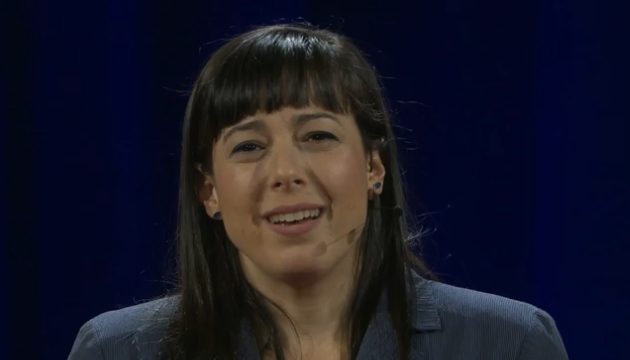The first one is that it liberates us.
第一个好处在于,这样做能够使我们解放自我。
When you think about it, using perception instead of categories is much easier said than done.
想一下,依赖自己的觉察力而不是已有的“陌生人”范畴,的确是说起来容易做起来难。
Categories are something our brains use.
分类是我们大脑惯用的伎俩。
When it comes to people, it's sort of a shortcut for learning about them.
对于人这一分类来说,这对学习了解他们是某种意义上的捷径。
We see male, female, young, old, black, brown, white, stranger, friend,
我们看到男性、女性、年轻人、老年人、黑种人、黄种人、白种人、陌生人、朋友……
and we use the information in that box.
然后我们就运用在那一分类之下的信息。
It's quick, it's easy and it's a road to bias.
这种方法很快捷,很简单,也同时带来了偏见。
And it means we're not thinking about people as individuals.
这意味着我们没有把人们看作单独的个体。
I know an American researcher who travels frequently in Central Asia and Africa, alone.
我认识一位经常在中亚和非洲独自旅行的美国研究员。
She's entering into towns and cities as a complete stranger.
她进入那些城镇的时候是完完全全的陌生人。

She has no bonds, no connections. She's a foreigner.
她和别人没有任何联系。就是一个外国人。
Her survival strategy is this: get one stranger to see you as a real, individual person.
她的生存法则是:让一个陌生人把你当作一个真实存在的独立个体。
If you can do that, it'll help other people see you that way, too.
如果你能做到这样,其他人也就能够通过这种方式注意到你。
The second benefit of using our senses has to do with intimacy.
凭自己感觉的另外一个好处与亲密感有关。
I know it sounds a little counterintuitive, intimacy and strangers,
我知道把陌生人和亲密感放到一起,听起来有些有悖直觉,
but these quick interactions can lead to a feeling that sociologists call "fleeting intimacy."
但是这些快速的互动可以带来一种被社会学家们称作“短暂亲密”的感觉。
So, it's a brief experience that has emotional resonance and meaning.
所以这是一段有情感共鸣和意义的短暂经历。












